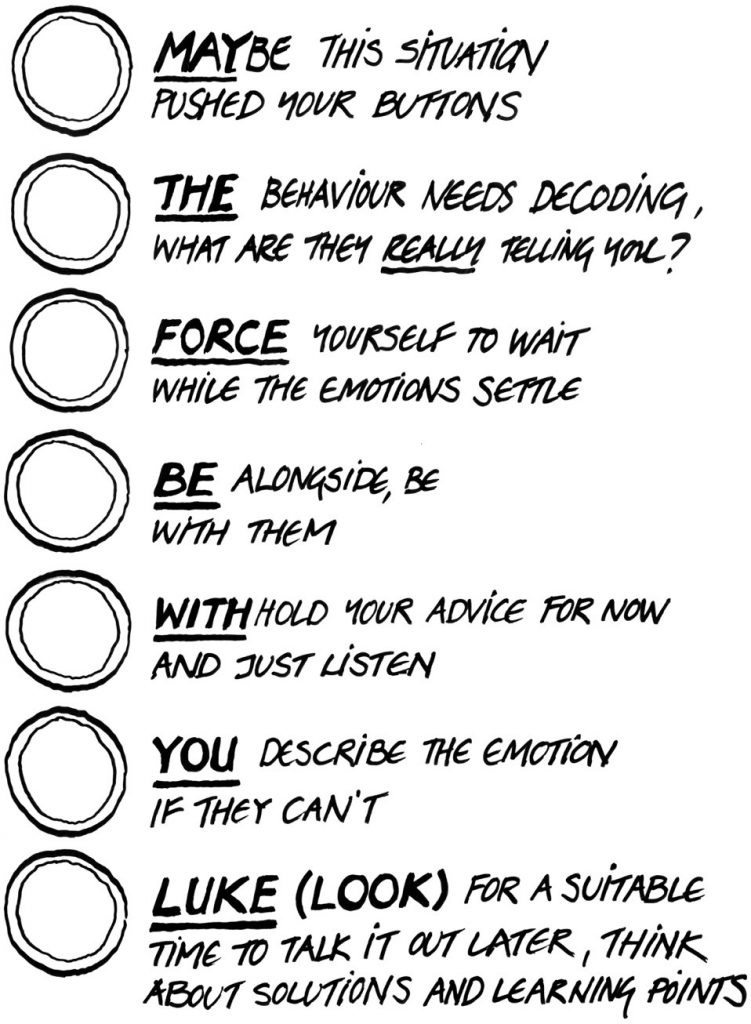By Bettina Hohnen & Jane Gilmour
The Coronavirus crisis has changed everything, at least in the short-term and possibly for a long time. You, me, families, organisations and governments – all of us are adjusting and some of us suffering. Anxiety is high. Here we consider how these extraordinary times will impact on teenagers. The ‘Teenage Brain’ is unique, it functions differently from a young child’s or from adult’s brain, so teens’ experience of this situation will be unique too. From puberty to around about the age of 25, the brain is on a particular setting so it can make a successful transition from childhood to adulthood. Separating from parents and hanging out with friends are what the teenage years are all about because they need to become independent, explore the world and integrate with their future community. Coronavirus, and the changes that it brings, is seriously getting in the way of that. So what can you do?
We draw on recent neuroscience and psychology findings to help you understand the specific challenges that social isolation brings for teenagers and give you tips about how to support your teen during Coronavirus.
Value their social connections, because they do

The science: Teens need friends like toddlers need parents. Their social brains are irresistibly pulled towards peers as they work out how they fit in, who their people are. It’s preparation for their future community life. Social inclusion is therefore considered crucial by the teenage brain and is as intrinsic to safety as physical health. The brain reacts to social pain (like social exclusion) and physical pain in the same way, which is why social exclusion literally hurts. As adults, we all miss our friends’ company given the current social distancing, but our teens will miss their friends more, because their brain is telling them they need social connection. If your teen drops to the floor in tears when they can’t go to their friend’s house for the foreseeable future, their distress is real, their brain is telling them social isolation is bad news and needs to be fixed.

Action point: Allow them to grieve and empathise with their loss; this is hard for them. Your language is important. Try to reframe term ‘social isolation’ to focus on physical distance, socialising is still on the cards but it is likely to be online. Teens are used to this of course, so now it’s our turn to have a growth mindset about screen-time. With clear negotiated boundaries in place consider interactive screen time as key to your teen’s well-being. Make sure you maintain the usual online safety rules but investigate video conference apps and give them space to be with their friends. Every day.
Teens need autonomy

The science: One of the defining features of the adolescent years is the need for independence. With this comes a craving for respect and autonomy. Teens want to work it out for themselves and are wired to do just that, rather than simply following instructions. Here’s an example: a simple shift in phrasing from ‘just take the medicine’ to ‘it might be a good idea to take this medicine’ significantly increases the chances of your teen taking medicine (it really does). Telling teens what to do without consultation is often counter-productive.

Action point: With schools shut, parents are managing home schooling, possibly working from home themselves. The temptation, with the best of intentions is to micro-manage. You may have heard recommendations to ‘make a schedule’ and concoct a well-thought through plan but hold on ….. The science tells us this is likely to fail. Why? Because they want to work it out for themselves, that’s why. This doesn’t mean abandon them completely to do it alone, but ask them to make a schedule and then discuss it. If you possibly can, go with their plan because the chances of adherence to it will be higher.
Teens need to take risks – so think creatively

The science: Sensation seeking and risk taking is heightened in the adolescent years. The brain sends reward signals when teens try new experiences because it wants them to expand their self-knowledge and explore the world in preparation for independence. We often assume teen risk taking is negative (experimentation with alcohol and sex) but ‘risks’ are just unknown outcomes. Positive risks (like giving a speech) are just as exhilarating and that sense of exhilaration is an inherent part of the teen experience. Self-isolation doesn’t lend itself to new experiences. How are they going find nail biting excitement while stuck at home with the olds? The problem is, if we quash that urge, it could get ugly.

Action point: Tap into teens’ aspiration for social status because this will feed the need for risk. Find a new role for them that is challenging but combine it with their passion. Got a tech genius? They could set up an online community system to help the COVID situation (think https://washyourlyrics.com), link grandparents to on-line services, or make a vlog diary of the Corona Virus experience for teens. You want them to put themselves out there – but it needs to happen from home or online, for now.
Empathise, first…. Advise, second

The science: The teenage years are dominated by strong feelings. During adolescence their brains become able to compute complex emotional experiences, but the intensity and volatility of these emotions can make some teens worry they are going ‘mad’. For example, how might a 15 year old react to the news that GCSEs are not going ahead? A rapid cycle of emotions is likely: relief and euphoria (Woohoo, exams are cancelled), anger (What was the point of that? All that work was a waste of time) and loss (I was gearing up to give it everything and knock it out of the park). These strong emotions are not just ‘hormonal’ (though that might happen too), these emotions are reflections of a complex and confusing time and they don’t yet have all the tools to deal with it.

Action point: The key to success here is to empathise first. Be prepared to really listen. If emotions run high, shake a snow globe, and watch together while the snowflakes settle – it’s a metaphor about what is happening inside your teen’s brain. You don’t need to say anything at all but just be alongside them. It will help your teen feel understood and calmer; there are many brain science studies showing this effect. Be curious about their experience (“What bothers you most about this?”) and it will take you a long way. After the storm has settled, then problem solve. If your teen is missing a special sleep over, could she have a midnight video call with her friend? Ask about their solutions, then you are awarding your teen social status by sharing the problem and helping develop problem solving skills. We have summarised our 7 step plan from the book which can be useful in these emotional melt-downs.

Keep Boundaries

The science: Here we draw on psychology parenting research rather than neuroscience, but the evidence is still as strong. Boundaries are as important as warmth and empathy to positive parenting. Right now in the midst of the changes that the COVID virus has brought, home, work and school boundaries are blurred. Now more than ever, young people need boundaries – it gives them a sense of security. So keep the faith and the boundaries. Yes it’s stressful, yes this social isolation is harder on teens than any other group but no, it’s not OK to be rude or refuse to join family meal-times.

Action point: Establish limits and a framework of expectations for the family – these may be revised from your usual routine as we are living in extraordinary times and of course include your teen’s ideas where possible (were you paying attention at the back?) For example, time constraints on screen time will likely be relaxed a little but we strongly recommend a specific, regular clear stretch of time each day when no one in the house is using screens – and that includes adults. Otherwise you could be living together but entirely disconnected.

No-one would wish for a situation like this, with all the stresses that it brings but if you are living life at a less frantic pace, consider using that time to make a difference to your teen’s well-being. Read our book here (https://intl.jkp.com/uk/the-incredible-teenage-brain-2.html)